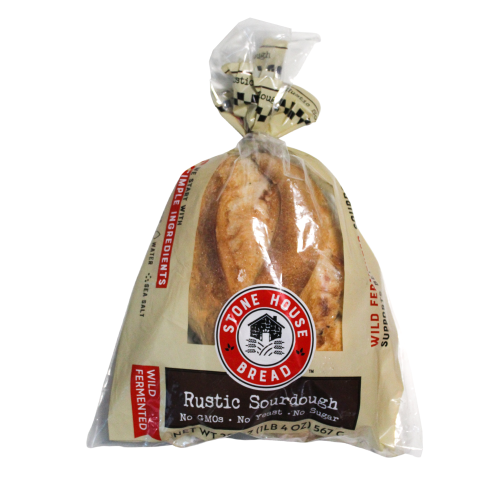Read Our Blog

Why is Sourdough Bread good for you?
Sourdough bread that is fermented over a longer period, typically around 24 hours or more, is often considered better for digestive health due to several reasons:
Pre-digestion of gluten: The long fermentation process breaks down some of the gluten in the flour, making it easier to digest for people with mild gluten sensitivities. This can reduce the discomfort that some individuals experience after consuming gluten-containing products.
Phytate reduction: Sourdough fermentation helps to reduce the phytate content of the bread. Phytates are compounds found in grains that can bind to minerals like zinc, magnesium, and calcium, inhibiting their absorption in the body. By reducing phytates, sourdough bread may enhance the bioavailability of these essential minerals.
Increased nutrient absorption: Fermentation can also increase the availability of certain nutrients in the bread, making them easier for the body to absorb. This includes nutrients like B vitamins and minerals.
Gut-friendly bacteria: The fermentation process in sourdough involves lactic acid bacteria and wild yeast. These beneficial microorganisms can have a positive impact on gut health by promoting a healthy balance of bacteria in the digestive system.
Lower glycemic index: Sourdough bread typically has a lower glycemic index compared to bread made with commercial yeast. This means it causes a slower and more gradual increase in blood sugar levels, which can be beneficial for overall health and may help with weight management and blood sugar control.
Reduced likelihood of digestive discomfort: Some individuals who have difficulty digesting conventional bread products may find that sourdough bread is easier on their digestive system, leading to fewer instances of bloating, gas, or other digestive issues.
Overall, the extended fermentation process in sourdough bread results in a product that is not only more flavorful but also potentially easier on the digestive system, making it a preferred choice for many people seeking healthier bread options. However, individual responses to different bread types can vary, so it’s essential to pay attention to your own body’s reactions and choose the bread that works best for you.





